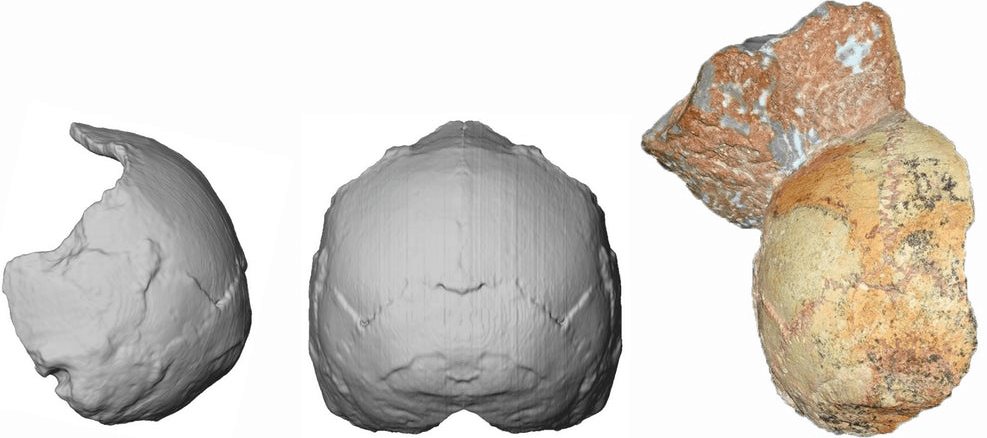
Two skulls that were discovered in Apidima, southern Greece in the 1970s, but weren't able to be properly identified, are now believed to be the oldest human remains in Europe.
A team of researchers from Greece, Germany, Australia and the UK has used modern dating and imaging techniques to figure out how they belonged to and how long they've been sitting there.
The two skulls, named Apidima 1 and 2, were from different species of human living at different times. Apidima 1 was determined to be a Homo sapiens specimen, characterized by the skull's rounded back.
Apidima 2, was unmistakably Neanderthal in origin. It had a thick, rounded brow ridge, and other minor characteristics of this related species.
Although they were found in the same piece of rock, just 30 cm apart, they were separated by roughly 40,000 years in time. Apidima 2 lived about 170,000 years ago, while Apidima 1 was dated to be 210,000 years old. According to the researchers on the new study, that makes Apidima 1 the oldest known fossil of modern humans in Europe.
The currently accepted story is that modern humans arose about 300,000 years ago, but were mostly constrained to Africa until roughly 120,000 years ago. That said, recent fossil finds in Israel suggest that modern humans had made it into West Asia as long as 177,000 years ago.
If the new fossils are confirmed to be as old as the researchers believe, they indicate that humans migrated out of Africa much earlier, and travelled further, than previously thought.
"Our results suggest that at least two groups of people lived in the Middle Pleistocene in what is now southern Greece: an early population of Homo sapiens and, later, a group of Neanderthals," says Katerina Harvati, lead researcher on the study.
"The Adipima 1 skull shows an early dispersal happened earlier than we thought, and also reached further geographically, into Europe itself. We hypothesize that, as in the Near East, the early modern human population represented by Apidima 1 was probably replaced by Neanderthals, whose presence in southern Greece is well documented, including by the Apidima 2 skull from the same site."
*Source: New Atlas
*Photo Credit: Katerina Harvati, Eberhard Karls University of Tübingen

